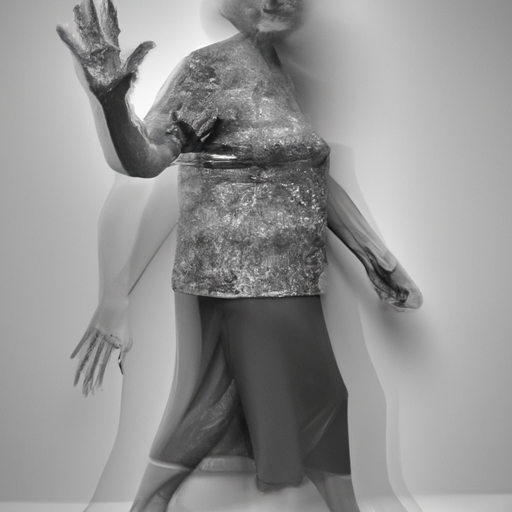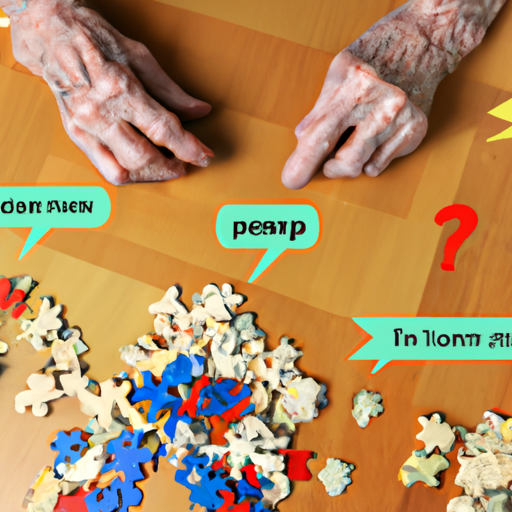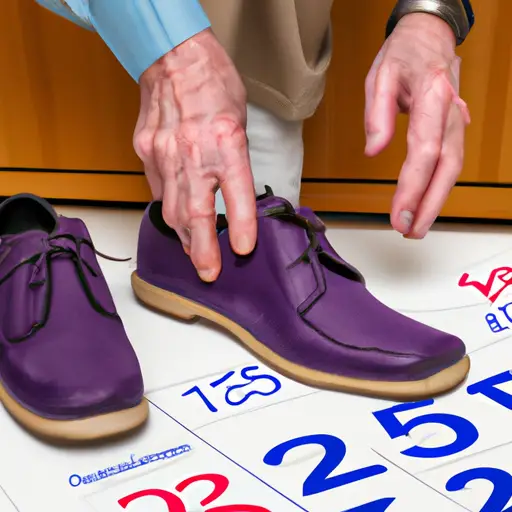Are you noticing subtle changes in your loved one’s behavior and personality? It could be a sign of dementia. While forgetfulness is often associated with this condition, there are other, less obvious signs to be aware of. Imagine your loved one suddenly struggling with spatial awareness and getting lost in familiar places. Or imagine the frustration of trying to communicate with them as they struggle with language. These strange signs of dementia may not be immediately recognizable, but understanding them can help you provide the best support and care.
Key Takeaways
- Unusual social interactions and increased withdrawal or social isolation can be signs of dementia.
- Difficulty with spatial awareness and navigation, including disorientation and trouble with depth perception, can indicate dementia.
- Trouble with language and communication, such as difficulty finding the right words and confusion in conversations, may be signs of dementia.
- Impaired judgment and decision-making, including difficulties with risk assessment and making impulsive choices, can be indicative of dementia.
Changes in Personality and Behavior

You may notice that your loved one with dementia starts exhibiting changes in their personality and behavior as the disease progresses. These changes can be quite distressing for both the person with dementia and their family members. One of the common signs is unusual social interactions. Your loved one may become more withdrawn or socially isolated, avoiding activities or gatherings they used to enjoy. They may also exhibit inappropriate or impulsive behaviors, such as making inappropriate comments or gestures. Additionally, shifts in emotional expression are another common aspect. Your loved one may experience mood swings, going from being happy to suddenly becoming angry or sad without any apparent reason. It is important to be understanding and patient during these changes, as they are a result of the underlying dementia and not intentional.
Difficulty With Spatial Awareness and Navigation

The difficulty with spatial awareness and navigation is a common and less obvious sign of dementia. Individuals with dementia may experience disorientation and have trouble with depth perception and coordination. They may struggle to understand their surroundings and have difficulty navigating familiar places. Tasks like driving or following directions can become challenging. They may also have trouble judging distances and may bump into objects or walls more frequently. This difficulty with spatial awareness and navigation can lead to increased frustration and anxiety for individuals with dementia. If you notice these signs in yourself or a loved one, it’s important to seek medical advice for a proper diagnosis and to explore strategies to help manage these challenges.
Trouble With Language and Communication

Continuing from the previous subtopic of difficulty with spatial awareness and navigation, individuals with dementia often experience trouble with language and communication. This can manifest in various ways, including word finding difficulties and confusion in conversations. Here are three common signs to look out for:
-
Difficulty finding the right words: People with dementia may struggle to recall common words or substitute them with incorrect or unrelated ones. This can make communication challenging and frustrating for both the individual and those trying to understand them.
-
Trouble following conversations: Dementia can make it difficult for individuals to understand and follow the flow of conversations. They may lose track of what was said or struggle to respond appropriately, leading to confusion and misunderstandings.
-
Reduced vocabulary and grammar skills: As dementia progresses, individuals may experience a decline in their language abilities. They may forget familiar words, struggle with sentence structure, or have difficulty expressing themselves clearly.
Recognizing these signs can help in identifying and managing dementia-related language and communication difficulties.
Impaired Judgment and Decision-Making

Moving on to impaired judgment and decision-making, individuals with dementia often experience a decline in their ability to make sound choices and assessments. This can manifest in several ways, including difficulties with risk assessment and making impulsive choices. When it comes to risk assessment, individuals with dementia may struggle to accurately evaluate potential dangers and make appropriate decisions to protect themselves. They may engage in unsafe behaviors, such as wandering off or mishandling household items. Additionally, impaired judgment can lead to impulsive choices, where individuals may act without considering the consequences or weighing the pros and cons. This can result in financial difficulties, unsafe situations, or strained relationships. It is important for caregivers and loved ones to be aware of these signs and provide support to help mitigate the risks associated with impaired judgment and decision-making.
Frequently Asked Questions
What Are Some Other Possible Causes for Changes in Personality and Behavior Besides Dementia?
Sometimes, changes in personality and behavior can be caused by factors other than dementia. These possible causes include medication side effects, stress, depression, anxiety, and even certain medical conditions. It’s important to consider all possibilities when assessing someone’s behavior.
How Can Family Members and Caregivers Help Individuals With Dementia Improve Their Spatial Awareness and Navigation Skills?
To improve spatial awareness and navigation skills in individuals with dementia, you can use strategies and techniques such as sensory stimulation and environmental modifications. These can help them stay oriented and navigate their surroundings more effectively.
Are There Any Specific Exercises or Therapies That Can Help Improve Language and Communication in Individuals With Dementia?
There are exercises and therapies available to help improve language and communication in individuals with dementia. These interventions can include speech therapy, cognitive stimulation, and reminiscence therapy.
Can Impaired Judgment and Decision-Making Be a Temporary Symptom of Dementia, or Is It Always a Progressive Decline?
Impaired judgment and decision-making in dementia can be both temporary and progressive. While some symptoms may fluctuate, overall there is a gradual decline. It’s important to monitor these changes and seek medical advice.
Are There Any Warning Signs or Red Flags That Family Members Should Look Out for Regarding Impaired Judgment and Decision-Making in Individuals With Dementia?
Look out for warning signs like difficulty with complex tasks, poor financial choices, and impulsive behavior. Support individuals with dementia by simplifying tasks, setting up routines, and providing clear choices to facilitate decision-making.
Conclusion
In the mysterious realm of dementia, subtle signs emerge, like whispers in the wind, revealing a deeper understanding of this complex condition. Changes in personality, difficulty navigating the vast expanse of space, and impaired communication all serve as harbingers of the mind’s decline. These hidden symptoms, often overshadowed by more obvious indicators, demand our attention and compassion. By recognizing and addressing these lesser-known signs, we can extend a guiding hand to those battling the enigmatic depths of dementia.


Leave a Reply